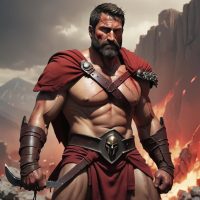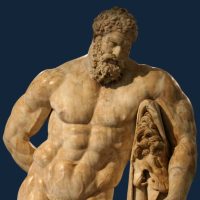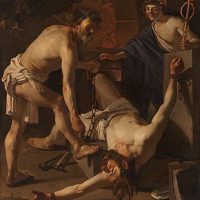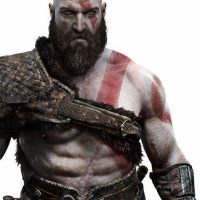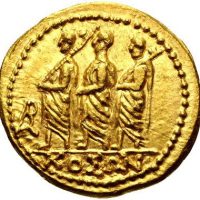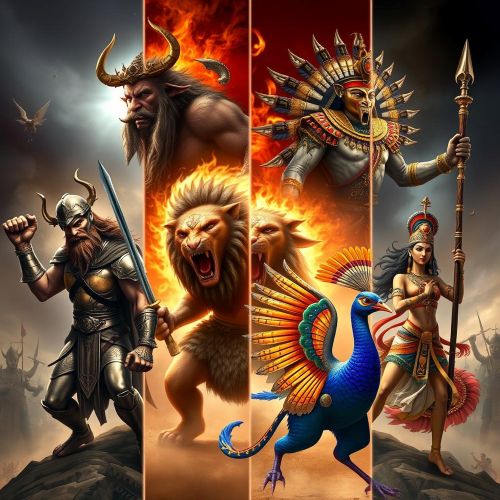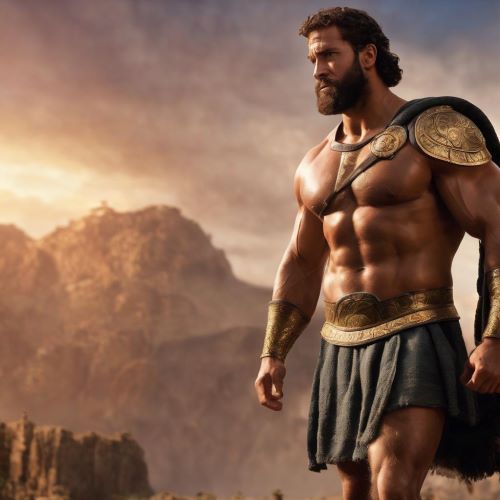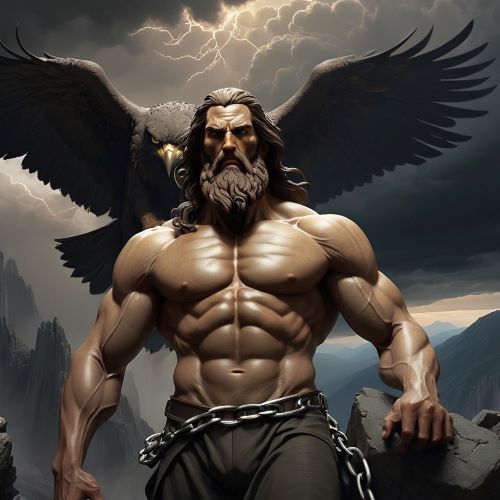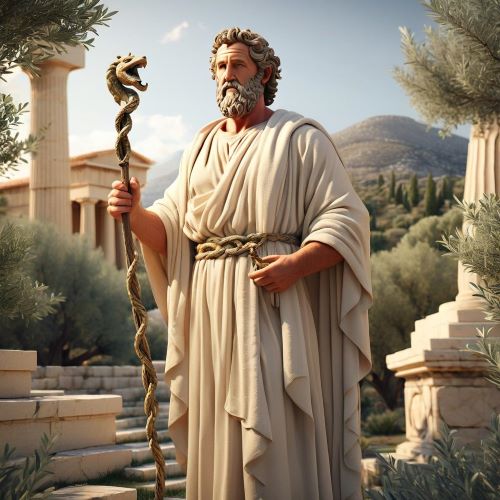Kratos : The Strongest One
Listen
At a glance
| Description | |
|---|---|
| Origin | Greek Mythology |
| Classification | Demigods |
| Family Members | Pallas (Father), Styx (Mother), Nike, Bia, Zelus (Siblings) |
| Region | Greece |
| Associated With | Strength, Victory, War |
Kratos
Introduction
Kratos, alternatively recognized as Cratus or Cratos, stands as a captivating presence within Greek mythology, embodying the essence of strength. His narrative provides insight into the ancient Greek perception of power and fortitude. Few figures within the vast expanse of Greek mythology elicit as much fascination and reverence as Kratos. Representing the unyielding and at times ruthless aspect of strength, he has etched an enduring legacy within ancient Greek lore, captivating contemporary audiences across various mediums. From his formidable physical stature to the intricate dynamics of his familial relationships and awe-inspiring abilities, Kratos persists as an emblematic figure spanning mythology, gaming, literature, and popular culture.
Physical Traits
Kratos is consistently portrayed as a muscular and imposing figure, embodying the very essence of physical strength. His robust physique, characterized by bulging muscles and a commanding presence, serves as a symbolic representation of his status as the epitome of power among the gods. Clad in warrior garb, often wielding formidable weapons like swords or axes, he further emphasizes his imposing stature. His skin, typically depicted as ash-white or pale, serves as a testament to his divine origins, distinguishing him from ordinary mortals. With a gaze capable of instilling fear in both mortals and deities alike, Kratos exudes an aura of formidable might, both in his appearance and demeanor.
Family
Kratos’ familial connections weave a tapestry of complexity within Greek mythology. Born to Pallas and Styx, embodiments of war and the boundary river between Earth and the Underworld, Kratos shares divine lineage with siblings Nike, Bia, and Zelus, representing Victory, Force, and Zeal respectively. This association with concepts of strength and victory underscores his divine heritage.
However, it is Kratos’ relationship with his father, Zeus, that forms a focal point in many myths. As the king of the gods, Zeus and Kratos’ tumultuous dynamic is laden with conflict and vengeance. This familial strife serves as a recurring motif, shaping Kratos’ character and motivations across various tales. According to Hesiod’s Theogony, Kratos and his siblings reside with Zeus due to their mother Styx’s initial allegiance to the king of gods, solidifying their ties within the divine hierarchy.
Other names
Kratos, a figure of Greek mythology, is recognized by several names, including Cratus or Cratos. In Gaius Julius Hyginus’ Fabulae, he is referred to as Potestas, showcasing the Roman adaptation of his persona. Across various interpretations of Greek mythology, Kratos’ identity is multifaceted, with each name shedding light on different aspects of his character and actions. The name Cratus, derived from the Greek word “kratos” signifying strength or power, accentuates his association with dominance and force. This alternative appellation underscores his role as a formidable deity within the pantheon.
Powers and Abilities
Kratos embodies unparalleled strength and power within Greek mythology, often called upon for tasks demanding sheer force. As the epitome of brute strength, he is relentless and merciless, advocating for the use of overwhelming violence when necessary. His superhuman strength enables him to overpower even the most formidable adversaries, coupled with exceptional combat skills that make him a formidable warrior in any confrontation.
Moreover, Kratos is depicted as possessing a level of invulnerability, rendering him impervious to many conventional forms of harm. This resilience, paired with his unwavering determination, allows him to withstand even the direst of situations. Furthermore, Kratos’ association with victory, symbolized by his siblings Nike, Bia, and Zelus, grants him an innate ability to triumph over obstacles and emerge victorious in the face of adversity.
Modern Day Influence
Kratos has transcended his origins in Greek mythology to become a significant figure in modern culture, particularly through his portrayal in the “God of War” video game series. Gamers have been captivated by his epic story, intense action, and exploration of themes such as punishment and redemption.
The critically acclaimed video game franchise, developed by Santa Monica Studio, places Kratos at its center as the protagonist. Here, he is reimagined as a complex character grappling with profound themes like redemption, fatherhood, and the consequences of one’s actions. Through gaming, Kratos has reached a new generation of audiences, drawing them into his epic adventures and introspective journey.
Beyond gaming, Kratos’ influence extends across various forms of popular culture, including literature, film, and art. His iconic appearance and compelling narrative have inspired numerous creators to delve into themes of power, vengeance, and the complexities of the human condition. Kratos has truly become a cultural icon, leaving an indelible mark on modern storytelling and entertainment.
Related Images
Frequently Asked Questions
What is lorem Ipsum?
I am text block. Click edit button to change this text. Lorem ipsum dolor sit amet, consectetur adipiscing elit. Ut elit tellus, luctus nec ullamcorper mattis, pulvinar dapibus leo.
What is lorem Ipsum?
I am text block. Click edit button to change this text. Lorem ipsum dolor sit amet, consectetur adipiscing elit. Ut elit tellus, luctus nec ullamcorper mattis, pulvinar dapibus leo.
What is lorem Ipsum?
I am text block. Click edit button to change this text. Lorem ipsum dolor sit amet, consectetur adipiscing elit. Ut elit tellus, luctus nec ullamcorper mattis, pulvinar dapibus leo.
What is lorem Ipsum?
I am text block. Click edit button to change this text. Lorem ipsum dolor sit amet, consectetur adipiscing elit. Ut elit tellus, luctus nec ullamcorper mattis, pulvinar dapibus leo.
What is lorem Ipsum?
I am text block. Click edit button to change this text. Lorem ipsum dolor sit amet, consectetur adipiscing elit. Ut elit tellus, luctus nec ullamcorper mattis, pulvinar dapibus leo.

